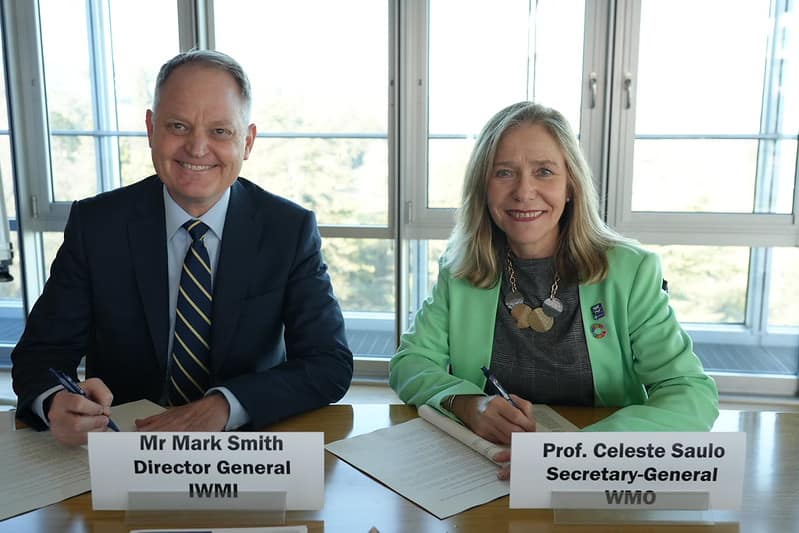Water, climate change and resilience
Climate-induced changes in water resource systems impact economies, food systems, cities, energy, health, ecosystems, and the security of communities. Such communities — including small holder farmers — affected by fragility, conflict, displacement, migration, frequent disasters and who are disconnected from water infrastructure, are among the most vulnerable to climate change. Shifting water availability and variable access require solutions and services that harness advances in technology, policies and finance and deliver them to places that historically had limited access to them. To support innovation and scaling for planning and investment, digital modeling is required on future scenarios of water availability and allocation. Of particular importance are advances in policies and technologies for disaster preparedness and response, climate-smart strategies for water storage, decarbonizing water systems, and the development of financial remediation schemes such as insurance. These efforts aim to integrate evidence-based approaches into planning and investments, ensuring that no community is left behind in the fight against climate impacts.
IWMI’s approach to adaptation planning is based on thinking that accommodates growing uncertainties within and between sectors. This means knowledge development that brings technical solutions linked with political and economic incentives that are developed within social and environmental contexts. Through digital modeling of likely future conditions, solutions may be designed to help manage the trade-offs of when, where, who and how water is allocated.
IWMI also advances the monitoring, forecasting, and risk and impact management of dynamically changing water shocks and stresses: floods, drought, extreme precipitation, and changing seasonality. The goal is, through IWMI’s knowledge and experience, to equip people and societies with the means to make the robust and flexible adjustments across systems, sectors and scales that are needed to withstand, recover from, and anticipate the impacts of climate change. Water management provides these vital levers and tools for resilience. Enhanced water management can thus be an enabler of adaptation, mitigation and more sustainable, water-conscious development across sectors and communities.
Our research in action
IWMI’s work enhances knowledge of how water relates to social, economic and environmental drivers of fragility, conflict, displacement and migration, and promotes the use of this evidence to promote resilience in dynamic scenarios including conflict-affected settings and communities hosting refugees and internally displaced people. IWMI investigates the role of water in reducing fragility and building resilience in conflict-affected settings, including the impacts of climate-driven water challenges on migration, displacement, and livelihoods. It leads innovations in disaster risk reduction strategies tailored to fragile settings, ensuring sustainable water management during and after crises.
To help governments and partners plan and operationalize climate change adaptation and/or mitigation strategies, IWMI integrates climate modeling, monitoring and scenario planning for the water, food and energy sectors. It develops climate resilient scaling pathways for water innovations with public and private sector actors in development and humanitarian contexts. By using river basin modeling and field assessment tools, IWMI analyzes the hydrological impacts of adaptation and mitigation solutions such as nature-based solutions or renewable energy technologies. It further develops and deploys flood and drought monitoring and forecasting technologies for improving disaster preparedness, anticipatory action and humanitarian response.
IWMI’s work empowers effective water governance and policy developments that promote inclusive climate change adaptation and mitigation and integrated humanitarian-development-peace nexus strategies. Through evidence generation and capacity development, IWMI seeks to support key stakeholders’ understanding of global policies and processes on water as well as the incorporation of water into national and regional climate strategies. It enhances knowledge on barriers and opportunities to promote greater mobilization of finance, including private finance for water security.







